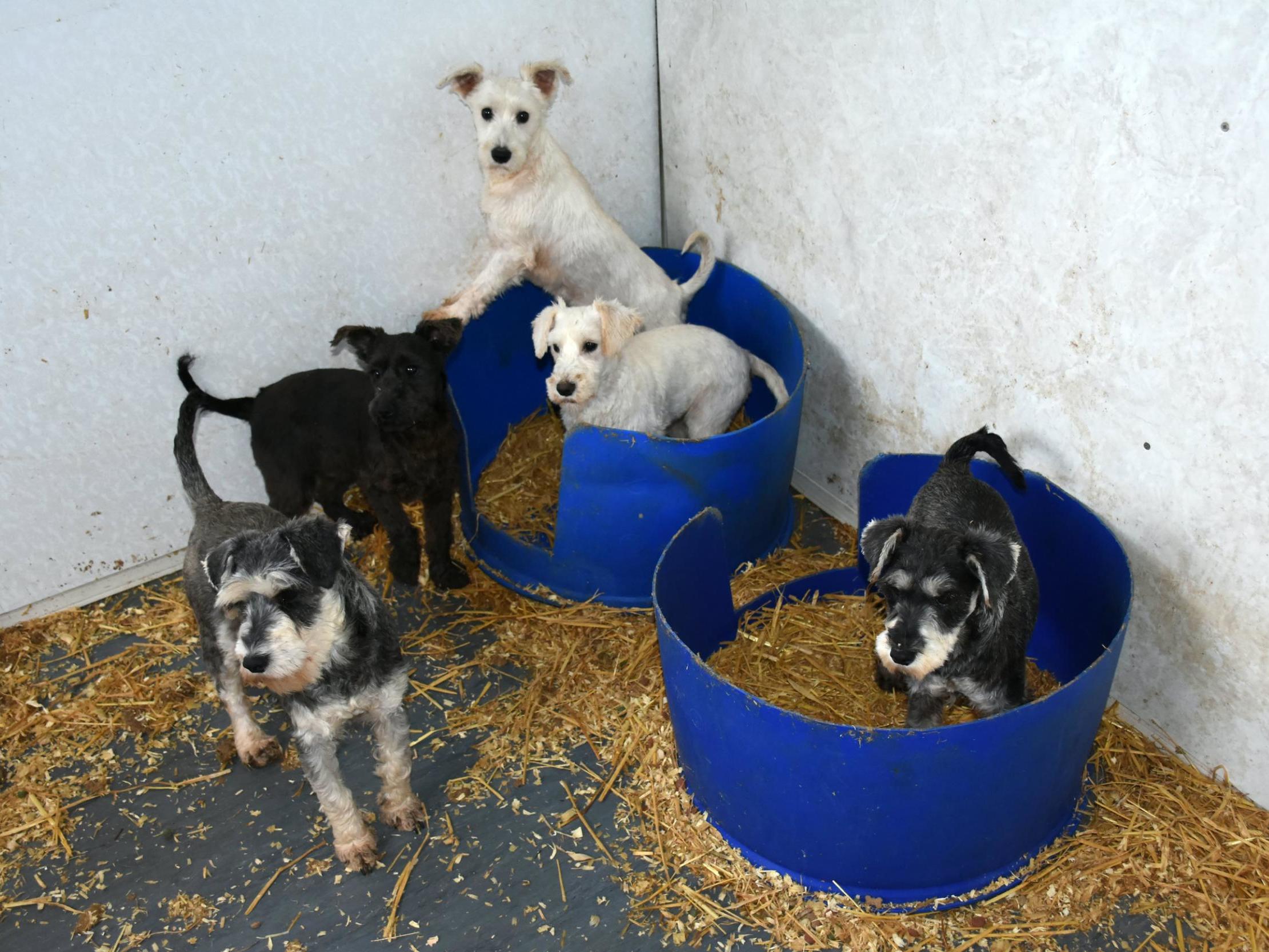Owners of ‘largest puppy farm in Scotland’ who burnt dog corpses in van convicted of animal cruelty
All 87 dogs, and rabbits and ferrets found in raid now in new homes

Your support helps us to tell the story
From reproductive rights to climate change to Big Tech, The Independent is on the ground when the story is developing. Whether it's investigating the financials of Elon Musk's pro-Trump PAC or producing our latest documentary, 'The A Word', which shines a light on the American women fighting for reproductive rights, we know how important it is to parse out the facts from the messaging.
At such a critical moment in US history, we need reporters on the ground. Your donation allows us to keep sending journalists to speak to both sides of the story.
The Independent is trusted by Americans across the entire political spectrum. And unlike many other quality news outlets, we choose not to lock Americans out of our reporting and analysis with paywalls. We believe quality journalism should be available to everyone, paid for by those who can afford it.
Your support makes all the difference.Canine breeders who owned the “largest puppy farm in Scotland” and are thought to have burnt the corpses of dead dogs have been convicted of animal cruelty offences.
Frank James, 53, and Michelle Wood, 29, kept over 100 animals in “disgraceful” conditions at farm in Aberdeenshire in what investigators described as a “battery farm for pups”.
When a raid was carried out at East Mains of Ardlogie Farm, near Fyvie in 2017, investigators discovered 87 dogs, including one just a few days old.
The Scottish SPCA had been tipped off after pet owners complained that their puppies, bought from the couple, were ill or dying.
Some years before James had been found to be keeping 70 dogs in filthy cattle barns, covered in lice, skin sores and cysts.
Following the investigation, James and two of his relatives pleaded guilty to welfare offences in October 2014.
James and his brother were banned from keeping more than two dogs for the next three years.
An undercover investigator for the Scottish SPCA said: “We believe this was the largest scale puppy farming operation in Scotland.
“The conditions these dogs were being kept in were absolutely disgraceful.
“It fell far below the minimum standard in terms of animal welfare and, given the environment and sheer volume of puppies, it was immediately evident these were not being kept as pets and the premises was effectively a battery farm for pups.
“Our investigation revealed dogs on site were being intensively bred with little to no regard for their welfare.
“On site, we found a burnt-out van which had dog carcasses within, suggesting this was a means of disposing dead pups.
“We acted swiftly and reopened our investigation into James when we received numerous reports of puppies who were either becoming unwell or dying within days of being purchased by unsuspecting members of the public.
“Much like the previous investigation, the squalid conditions we found these pups being housed in showed a total disregard for their wellbeing.
“Sadly, when dogs are bred in appalling conditions, it is very common for them to develop serious illnesses, medical conditions or even to die within weeks of being born.”
After the raid, all 87 dogs as well as rabbits and ferrets which were found at the farm were re-homed after the charity took civil action.
On Friday, James was found guilty of causing unnecessary suffering to dogs, ferrets and rabbits under the Animal Health and Welfare (Scotland) Act 2006.
He was also found guilty of failing to ensure the welfare of the same animals at Aberdeen Sheriff Court on 19 July. Michelle Wood was found guilty of the same charges.
Scottish SPCA chief superintendent Mike Flynn said: “Whilst every animal in our care receives all the love and attention in the world, it is not beneficial welfare-wise to spend months or even years in a rescue and re-homing centre until criminal proceedings conclude.”
“In our centres, care costs an average of £15 per dog a day so picking up the pieces from dog breeders who prioritise profit over welfare puts a massive strain on our resources.
“Thankfully, the decision to pursue a civil action in this instance means many of these animals found their forever homes long ago.”
SWNS
Join our commenting forum
Join thought-provoking conversations, follow other Independent readers and see their replies
Comments